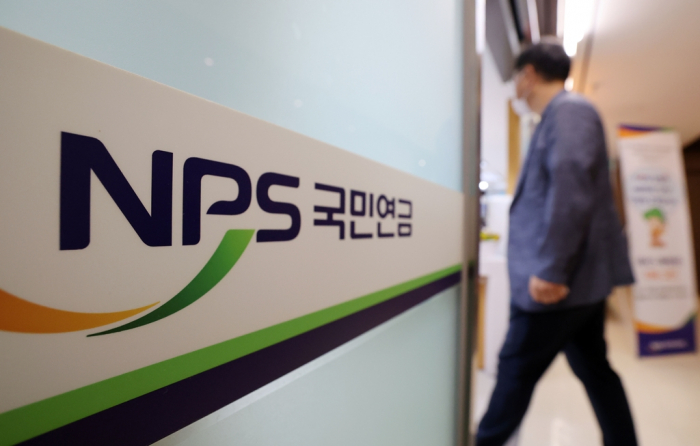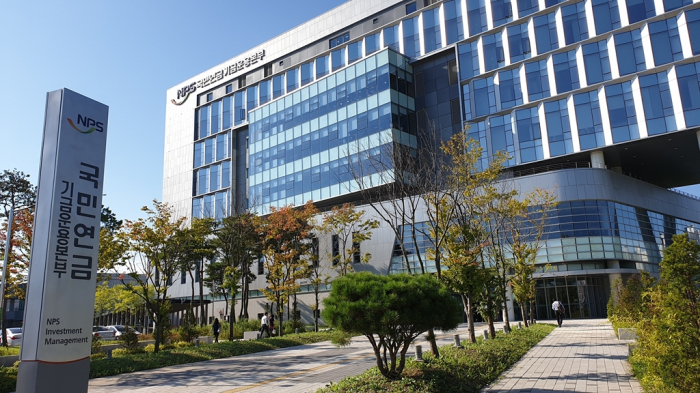Pension funds
Korea may limit NPS power on shareholder derivative suits
The government may seek measures to enhance the expertise of the fund’s top decision-makers for better profitability
By Sep 07, 2022 (Gmt+09:00)
5
Min read
Most Read
LG Chem to sell water filter business to Glenwood PE for $692 million


Kyobo Life poised to buy Japan’s SBI Group-owned savings bank


KT&G eyes overseas M&A after rejecting activist fund's offer


StockX in merger talks with Naver’s online reseller Kream


Mirae Asset to be named Korea Post’s core real estate fund operator



South Korea may keep the National Pension Service (NPS), the world’s third-largest such fund, from increasing its power for shareholder derivative suits to mitigate concerns among local companies over its excessive influence on their management activities.
The government is also likely to enhance the expertise of the National Pension Fund Management Committee, the top decision maker of the fund, which manages 882.7 trillion won ($636.4 billion) in assets as of end-June, to improve its profitability and sustainability. In addition, the country will seek steps for pension holders to pay more and receive less.
President Yoon Seok-yeol was understood to have recently ordered his aides to check for any problems on measures sought by his predecessor Moon Jae-in to boost the fund’s representative shareholder litigation against domestic companies, according to sources of the government and the fund on Tuesday.
The Moon administration had planned to transfer authority for the derivative suits to the fund’s special committee for responsible investment and governance from the NPS’ fund investment management arm. The government had also sought to expand the scope of the committee’s shareholder proposals, which are currently limited to non-management issues such as dividends and executive salaries, to matters that could undermine corporate values due to the potential violation of laws.
Yoon criticized the measures when he was a presidential candidate, saying “the decision was made without enough consideration given to the side effects.”
The domestic corporate sector opposed the Moon administration’s policy, saying the special committee may overuse the power for shareholder derivative suits if labor and civic groups participate as members. The committee consists of nine members, three members recommended each by the labor and employer bodies, as well three by the local pension holder groups.
As Yoon has ordered to identify the problem of the transfer of shareholder derivative suit authority, the measures are likely to be revised or reexamined from the starting point, the sources said.
TO IMPROVE EXPERTISE FOR HIGHER PROFITABILITY
The government is more likely to seek measures to improve investment expertise since new Chairman Kim Tae-hyun, who previously worked for the finance ministry and the regulatory Financial Services Commission, took office. Kim was known to have been ordered to enhance the fund’s expertise.
The National Pension Fund Management Committee has been criticized due to a lack of expertise, which has hurt the fund’s profitability. The NPS reported a 10.86% rate of return last year, lower than its peers in the US, Canada, Japan, Norway and the Netherlands. The pension funds of Norway and Canada logged returns of 14.51% and 13.66%, respectively, according to South Korea’s National Assembly Budget Office.
“The current NPS fund management system is the same as the one designed in 2005 when its reserves were only 160 trillion won and its asset composition focusing on local bonds was simple,” said Nam Chae Woo, a research fellow at the Korea Capital Market Institute.
“Its management strategy and decision-making system must be changed as the fund has grown to nearly 900 trillion won and its assets have diversified.”
The National Pension Fund Management Committee consists of 20 members, including the Minister of Health and Welfare as a chair and NPS chairman, as well as vice ministers of the finance ministry, labor ministry, agricultural ministry and trade ministry. Representatives from employers, labor and local pension holder groups are also members of the committee.

GOVERNMENT OFFICIALS, LABOR ACTIVISTS ARE NOT EXPERTS
The six members from the government are administrative experts who are not good at fund investments, sources said. They are often embroiled in controversy over political neutrality.
“The National Pension Fund Management Committee currently has few experts,” said an expert in pension funds.
The NPS is a major shareholder of top local companies such as Samsung Electronics Co., the world’s No. 1 memory chipmaker. The fund actively intervened in corporate management activities during the previous Moon administration that sought to influence companies’ decision-making, citing the Stewardship Code, in which institutional investors engage with investee companies and vote at shareholders’ meetings. Last year, the NPS vetoed 549 cases, or 16.3%, of the 3,378 times voting rights were exercised by the fund during shareholders’ meetings.
“Government intervention usually adds to the burden on fund managers,” said another expert in the pension fund sector.
US activist hedge fund Elliott Management sought compensation of $770 million in 2015 through an investor-state dispute settlement (ISDS), saying it suffered losses due to the NPS’ support of the merger between Samsung C&T Corp. and Cheil Industries Co.
Three representatives in the committee from the labor sector are not investment experts, the pension fund sources said. They are more interested in controlling corporate management activities through the fund’s investment than in raising profitability, they added.
“It is a key global trend for major pension funds to strengthen expertise,” said Institute for Global Economics Chairman Jun Kwang-woo, a former head of the NPS, stressing that NPS needs to follow the trend.
Some experts suggested the NPS should model itself after the Bank of Korea’s monetary policy board. The interest rate policy-setting body includes not only the BOK governor and senior deputy governor but also members with expertise in the economy recommended by the Korea Chamber of Commerce and Industry and the Korea Federation of Banks.
Write to Jun-Ho Cha, Yong-Hee Kwak and Jung-hwan Hwang at chacha@hankyung.com
Jongwoo Cheon edited this article.
More to Read
-
 Pension fundsNPS' new chairman Kim Tae-hyun to start 3-year term
Pension fundsNPS' new chairman Kim Tae-hyun to start 3-year termSep 01, 2022 (Gmt+09:00)
1 Min read -
 Pension fundsKorea's NPS posts 8% loss from investment in H1 2022
Pension fundsKorea's NPS posts 8% loss from investment in H1 2022Aug 30, 2022 (Gmt+09:00)
2 Min read -
 Pension fundsNPS’ shareholder meeting vetoes cast pall on its profitability
Pension fundsNPS’ shareholder meeting vetoes cast pall on its profitabilityApr 20, 2022 (Gmt+09:00)
2 Min read -
 Pension fundsNPS posts 24% return from alternative investment in 2021
Pension fundsNPS posts 24% return from alternative investment in 2021Feb 28, 2022 (Gmt+09:00)
1 Min read
Comment 0
LOG IN


